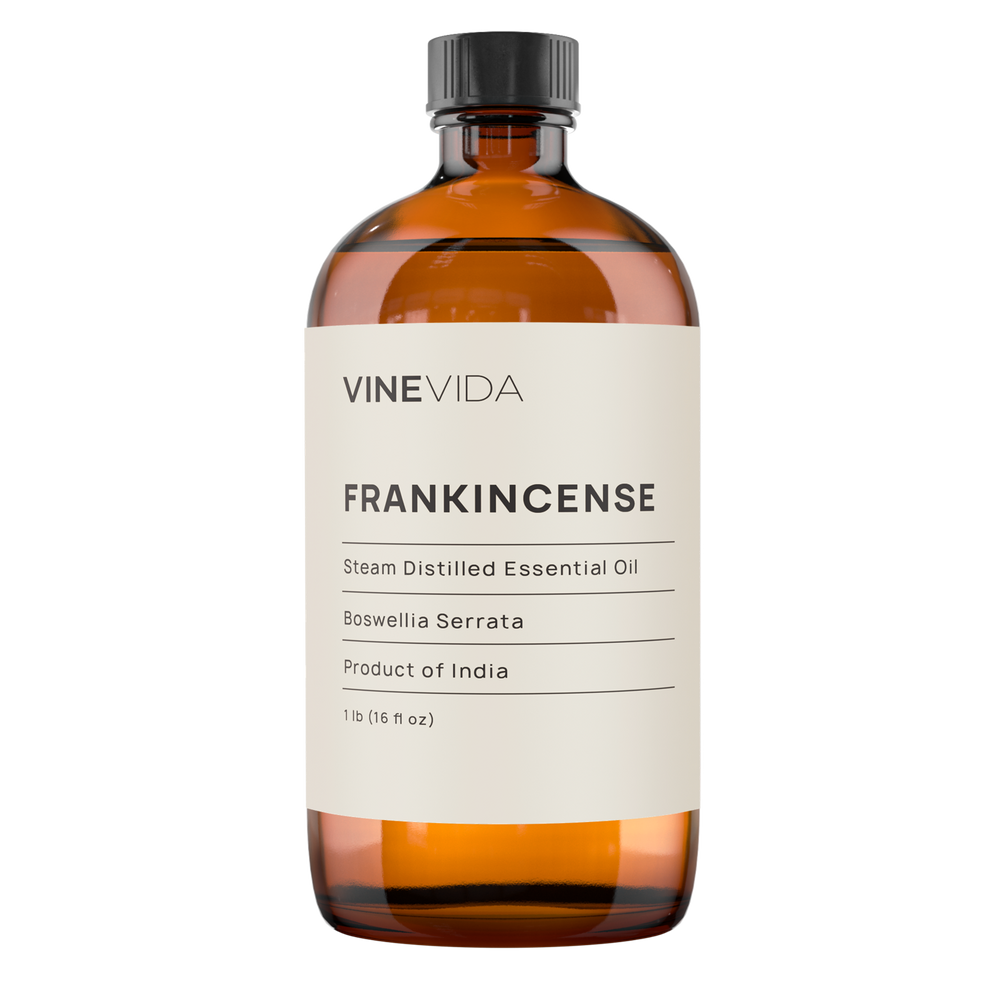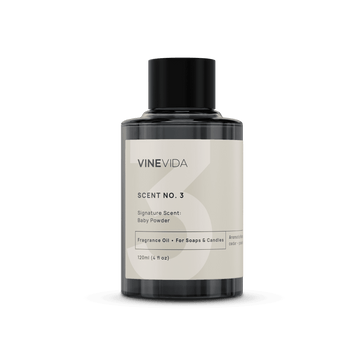It was said that the Queen of Sheba ruled the Silk Routes of Biblical times. Armed guards in 700BC escorted her caravans of Frankincense exports, and the route was so clearly defined that she would execute anyone strayed from it. Prized since antiquity, there have been times in history when frankincense has been more valuable than gold.
Today, we are lucky not to wait for a camel. We have beautiful essential oils to hand. But the question is, what is Frankincense essential oil good for?
The resin from the Middle East is distilled into a powdery, pine-scented essential oil, but what are Frankincense essential oils good for? It is beautiful for respiratory complaints (especially in children), skincare, and restoring tendons' elasticity.
It is proven to help people to recover from insomnia and is of paramount importance for people looking to follow a spiritual path. Frankincense slows the breath and stills the mind, making communication with one’s deity easier and more attainable.
Is Frankincense Essential Oil Good For Skin?
The ancient Egyptians steeped Frankincense resin in vegetable oils and combined it with other plant extracts to embalm their dead. The arid conditions of the Sahara Desert are mainly responsible for the excellent preservation of mummies. Still, we can also thank the powerful effects of frankincense and its ability to preserve tissues.
Egyptian temples show murals of Queen Hatshepsut surrounded by bags of incense she had imported from the Land of Punt and sitting amongst the frankincense trees she brought into the country. We can only imagine the gorgeous salves she had made from them, but we know her skin would have been beautifully softened from the effects of the scorching sun.
Frankincense restores elasticity to the tissues. It is excellent for skin that is becoming wrinkled, overly dry, or is more mature and is superb for adding into preparations for conditions like eczema or psoriasis, where there is a dry, brittle nature to the skin.
It can be problematic to use frankincense on oily or greasy complexions. It's best avoided if you have a regular face too. Instead, consider using roses or geranium essential oils or jasmine absolute.
However, there is no better essential oil for more mature skins, ones that are overly dry, brittle, or wrinkled.
Frankincense Is Good For Tendon Problems
Sports injuries such as tennis elbow, bursitis or housemaid’s knee, and tendonitis are all underpinned by a problem with how the connective tissue stretches and resulting inflammation. Unfortunately, this is often surrounded by swelling, particularly in the elbow and knee fluids.
Frankincense comprises at least 340 constituents[1], many with solid anti-inflammatory properties. However, combining it with Roman chamomile is better, which will bring down the inflammatory markers. If you add fennel or juniper essential oil, too, that can help with fluid retention around the knee or the elbow. Then frankincense restores elasticity to the tissues, helping them become more mobile and less stiff and painful.
Frankincense Essential Oil For Respiratory Issues
Frankincense essential oil slows the breath, opens the airway, and allows you to breathe more easily.
This is one of the reasons why it is excellent for spiritual work and meditation. However, it is one of the primary essential oils to choose for asthma, difficulty breathing through hayfever, bronchitis, and emphysema.
It is beneficial for emphysema on two levels. First, in emphysema, the bronchial tissues deteriorate, so they no longer inflate or deflate as they should. Frankincense restores this elasticity, opening the airways and slowing the breath.
The alpha-pinene in the oil has a superbly expectorant quality. So if you have a chesty cough or even a non-productive cough, then frankincense can be beneficial.
Apply it topically, in a massage, cream, or lotion, as much as five times throughout the day.
Before doing so, scroll down to the safety data on how to use frankincense essential oil further down the article.
Frankincense Is Better Than Eucalyptus For Children
While eucalyptus essential oil is probably most people’s go-to for the sinuses and catarrh, it is rich in a constituent called 1,8 cineole which slows respiration. This can be dangerous for children, so using frankincense on small ones is safer and preferable. It also has an incredibly comforting nature, so kids adore how safe and cozy they feel whenever a drop of frankincense is on their teddy bear’s head. Unfortunately, it doesn't have such a solid antimicrobial profile as eucalyptus, so perhaps consider adding a drop of tea tree to fight the bugs a bit more.
Is Frankincense Essential Oil Good for Cancer?
There is evidence that there may be clinical ways to use extracts from frankincense resins to fight cancer. For example, Petri dish experiments show that some constituents exhibit antitumor abilities and have antiproliferative natures, which stops cancer cells from spreading and multiplying, especially for bladder and breast cancers.
However, the constituent most likely responsible for this is boswellic acid, a colossal molecule too big for steam to lift. This does not appear in the essential oil because it cannot pass through distillation.
That’s not to say there aren’t other molecules in frankincense essential oil, only that none have been identified yet. Likewise, it may be that boswellic acid requires the support of other molecules to enable its magic to happen. Finally, so far, experiments have only been shown in vitro. Sadly, that is eons away from saying we know how to cure cancer. At the moment, I am afraid; there is no evidence that frankincense essential oil is good for cancer.
Is Frankincense Essential Oil Good for in a Diffuser?
When you diffuse essential oils, they change the atmosphere of a space. In the same way as when a holy man swings a censor full of frankincense resin, the feeling of the space changes. It grows calmer. Indeed it sanctifies it.
Research shows that when incense is burned in a church, it clears the space of all microbes. So, it has become a valuable tool for helping people return to worship after all the lockdowns. At the same time, there is no evidence that it can guard against the Virus, That Shall Not Be Named. Other germs such as Escherichia coli, Pseudomonas aeruginosa, and three strains of Staphylococcus aureus all exhibit weak to moderate susceptibility to it, as do certain fungi.[2]
It is calming and nurturing; as we have said, children, in particular, love it. It's a lovely thought of how the Magi handed a casket to the Virgin Mary in the nativity tale. We have no idea what their thinking behind it was, yet it’s gorgeous to think of the lullaby.
“Little Jesus, sweetly sleep, do not stir….”
That’s very much the nature of frankincense.
Frankincense is Great For Sleep
As already stated, kids love a drop of frankincense on their teddy bear's head. It is so comforting that they often gently drift off to sleep.
A lovely Japanese trial explored its effects on stress and slept in 2019. They massaged a little bit of frankincense essential oil diluted into a jojoba carrier onto some rats, then watched how it affected their sleep patterns. The results showed that frankincense affected the wakefulness of sleep-deprived rats and the amount of non- REM sleep. They concluded that frankincense is lovely for stress because it can help to repay sleep debt. [3]
How To Use Frankincense Essential Oil Safely
As long as you avoid frankincense in the first 16 weeks of pregnancy, it is a lovely easy essential oil. Maximum dilution for adults is 3%, and1% for children, although we would not advise using any essential oils topically on children under 6 months old.
A Note on Sustainability
Researchers have found that burning incense in the church may be more critical than just symbolic. We have also talked about its antimicrobial and antifungal effects. In addition, it has been found that the resin may have constituents that could affect anxiety and depression. Again, these do not pass through distillation, but they give us another reason people want to keep harvesting the resin.
In days gone by, the plantations were guarded by the wisdom keepers who would ritually ask the tree for permission to take its oil, and this would be done so in the ceremony.
Today, harvesting is a billion-dollar industry threatening the tree's existence. Economists say that if we continue to harvest frankincense at the same volume as we are, there will be none left by 2050.
If you just want something to help you relax at the end of a bad day, please consider using another oil. Do not use it to clean down surfaces or, worse still, clean your toilet. Please view it with the same sanctity as the Maji, an oil for incredibly sacred and special use.
What is Frankincense Essential Oil Good For -DIY Recipes
Moisturizer for Dry Skin
- 50ml Aqueous Cream
- 2 drops Frankincense Essential Oil (Boswellia carterii)
- 1 drop Vetiver Essential Oil (Vetiveria zizanioides)
- 1 drop Patchouli Essential Oil (Pogostemon cablin)
Method of Use: Use morning and evening after cleansing and toning the skin.
Safety: Not suitable for use during the first 16 weeks of pregnancy.
Joint Inflammation
- 10ml Grapeseed Carrier Oil (Vitis vinifera)
- 10 drops Tamanu Carrier Oil (Calophyllum inophyllum)
- 5 drops Roman Chamomile Essential Oil (Anthemis nobilis)
- 3 drops Juniper Essential Oil (Communis juniperus)
- 3 drops Frankincense Essential Oil (Boswellia carterii)
Method of use: Massage into the afflicted joint five times a day for the first week, then morning and evening.
Safety: Not suitable for use during pregnancy (Juniper)
Related Article: Top 5 Frankincense Essential Oil Blends – The Best Uses of the Most Recommended Oil Blends
Final Thought
The answer to what is frankincense essential oil suitable for is probably the one that got the plant into the problems it has now. The answer is anything to feeling calm, protecting the skin, and alleviating pain. But the plant cannot sustain the levels of interest the world has in it. So, we should say long-term stress, very mature skin, spiritual dis-ease, and protecting poorly children.
References
[1] Chemistry and Biology of Essential Oils of Genus Boswellia[2] Frankincense and myrrh essential oils and burn incense fume against micro-inhabitants of sacral ambients. Wisdom of the ancients?
[3] The Effects of Frankincense Essential Oil on Stress in Rats















